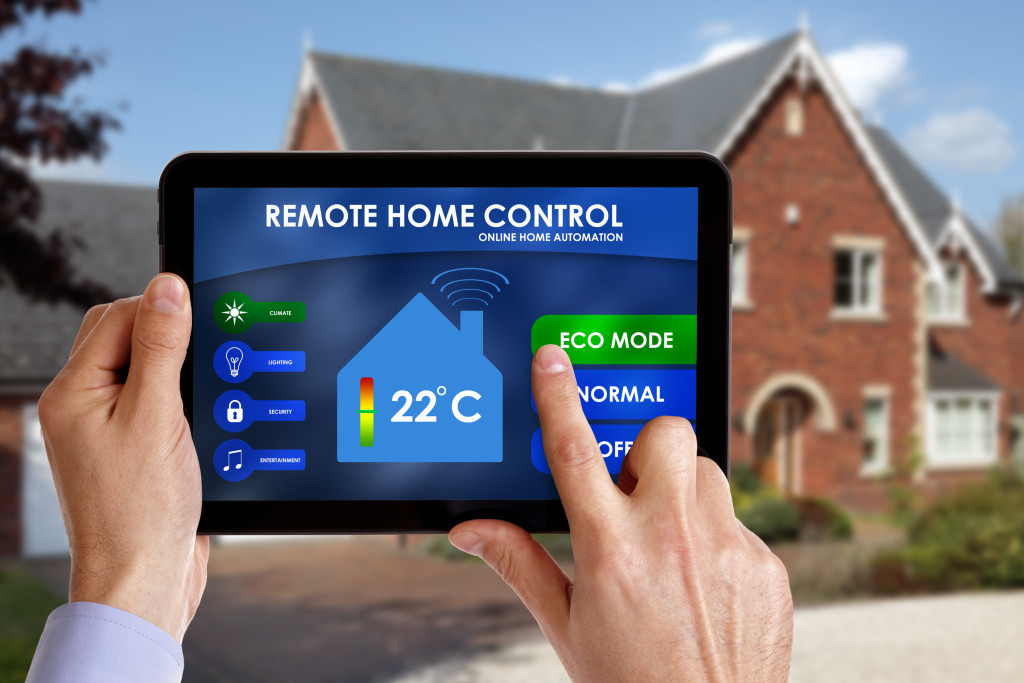Smart homes are becoming more popular now. Many people think that they are better than conventional homes because of the security they offer. Smart homes are innovative and can follow the rapid development of technology.
Smart home technology is well-considered in building a new house or upgrading an existing one. And there is no easy answer to why a smart home is the best for you. This article will talk about the benefits of innovating your home and the drawbacks it carries. Here are the pros and cons of smart home technology.

Pros
Extraordinary Convenience
One of the best advantages of smart home technology is that it is very convenient. In many ways, smart home technology serves as a straightforward replacement for older manual aspects of our homes. Although this may not necessarily change anything, the endless benefits might nevertheless save you a lot of time.
You won’t have to fumble with keys when you get home. You won’t have to wait for your room to cool down or heat up because of your air conditioner. You won’t have to worry about light switches and so much more. These are all minor details, but they pile up in the long run. This isn’t simply true for physical time saves. Minor reductions in mental loads can also have meaningful, albeit ambiguous, mood benefits.
Energy Savings Potential
It may appear that a system based on increased high technology would result in higher power bills. However, this is not always the case. By automation with smart home technologies, efficiency can skyrocket while waste is reduced.
The automated shutdown feature is one of the reasons why you can save energy. Smart home systems users reported saving up to 25% of their bills on cooling. And 50% off their bills for water.
You can increase this effect by adding solar panels to the equation. And in some situations, you can earn money from the power returned to the grid.
Extremely Customizable
This is one of the best advantages of having smart home technology. Smart homes are highly customizable. There are an extreme amount of possibilities in which you can customize your smart homes. As long as you have an idea or interest in technology, you won’t run out of ideas.
For businesses, a well-managed smart home system can provide more dependable connections throughout your home, reducing the risk of data packet loss. Fewer data loss means fewer unintentional errors, unpleasant surprises, and irritated coworkers.
Further, you don’t have to install HD cameras in your entire home. You can choose where you want to place the cameras, like the living room or your front gate. You can place it somewhere hidden or right beside the customized metal signage of your family’s name.
Cons
Relies on Knowledge of Technology and Enthusiasm
Smart home technology has made a lot of progress since their creation, but they aren’t without flaws. Most of us know someone who has technophobia or learned helplessness. This can appear to be an impossible hurdle to overcome.
What needs to be recognized about this matter is that, like many other technological elements, overcoming this problem may be a matter of popular acceptability. Many people dismissed cell phones as being overly complicated at first, with only 58 percent of individuals utilizing these gadgets in 2012. They now have an 87 percent penetration rate in the UK.
Similarly, smart home technology has witnessed a steady increase in popularity as it matures. Only 8% of houses in the UK used these technologies in 2013, but by 2019 that number had risen to 27%. Even though smart homes are more technical than smartphones, similar trends are expected to emerge.
New Technology Raises Security Concerns
The issue of home security is another crucial potential roadblock for smart homes. Smart home systems are quite safe for the typical person. Tech-savvy folks are everywhere testing their talents by identifying leaks in them. This might be as simple as turning lights off and on until the lowest level password is updated. There could be problems with doors being left open or personal information being stolen for more serious situations.
It’s difficult to say how serious of a problem this will become in the future. Smart home technology has put much effort into security. But as the devices become more widely used, hackers may become more interested. The game of cat and mouse is currently controlled by smart home protection. But the relationship might become considerably more difficult in ten years.
Some individuals and their houses may never receive significant benefits from smart home systems. On the other hand, others may find significant gains in efficiency, entertainment, and financial savings as a result of making the switch.
At the end of the day, it’s an issue of your desires, needs, finances, and future. Owners should remember that this technology isn’t going away anytime soon. So it doesn’t matter if you need it now or not; it’s still worth keeping an eye on.

